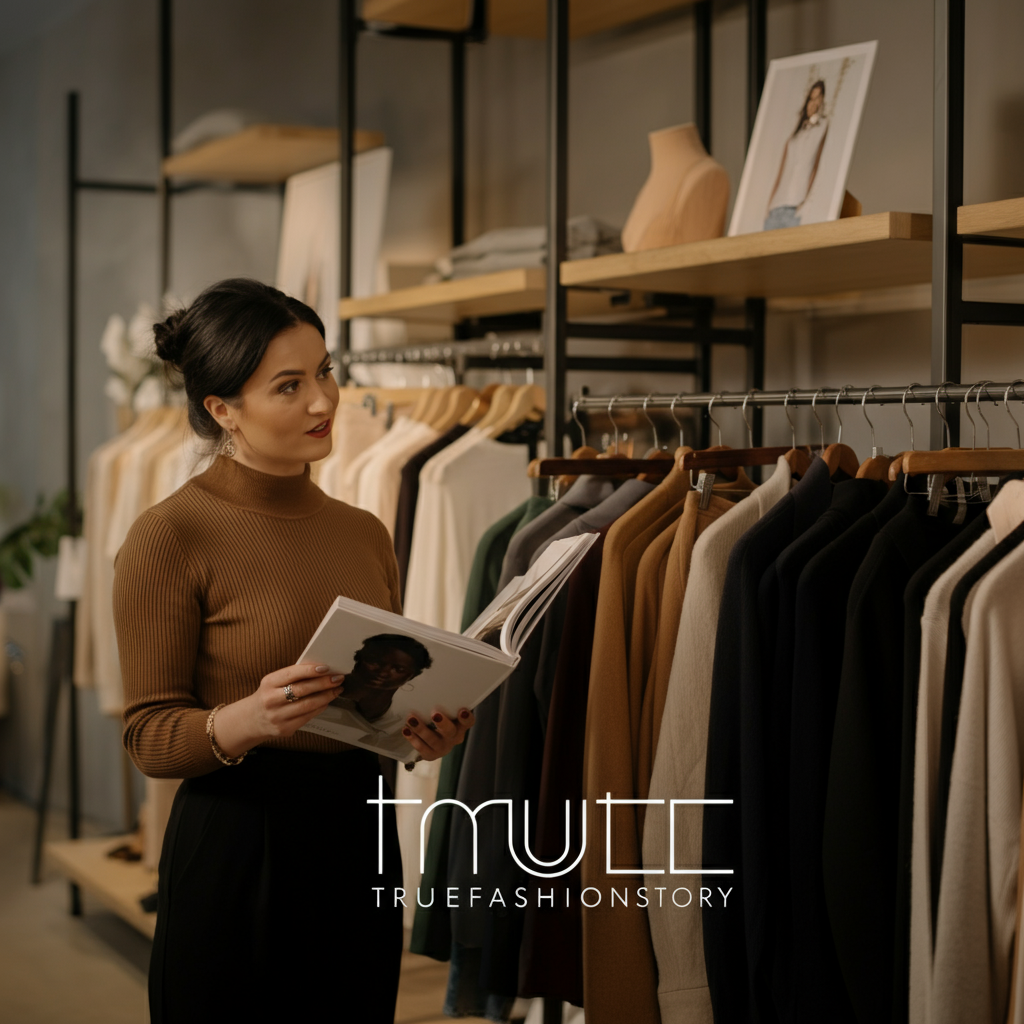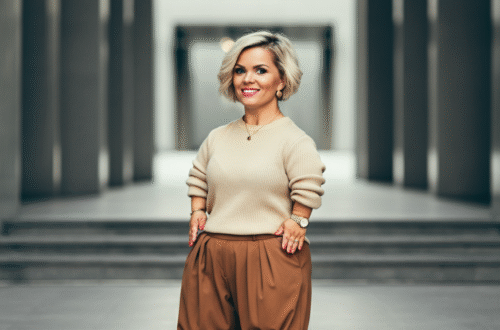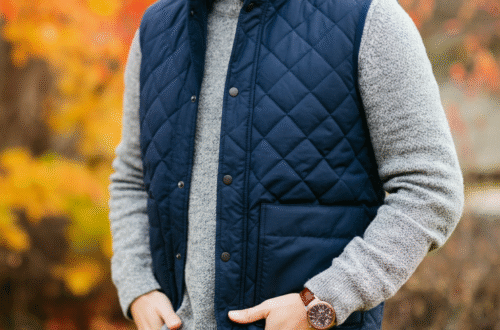Are you passionate about style, trends, and the fashion industry? A career as a fashion representative might be your perfect match. This role combines business acumen with fashion expertise, offering an exciting pathway into one of the world’s most dynamic industries.
In today’s fashion landscape, brands rely heavily on skilled representatives to connect their products with buyers, retailers, and consumers. Whether you’re fresh out of college or looking to pivot your career, understanding what it takes to become a fashion representative can open doors to incredible opportunities in this billion-dollar industry.
What Is a Fashion Representative?
A fashion representative serves as the vital link between fashion brands and their potential customers. These professionals work to promote, sell, and represent clothing lines, accessories, or beauty products to various buyers including retail stores, boutiques, department stores, and sometimes directly to consumers.
Fashion representatives wear many hats throughout their careers. They analyze market trends, build relationships with buyers, attend trade shows, and work closely with design teams to understand product features and benefits. Their ultimate goal is to increase brand visibility and drive sales through strategic partnerships and effective communication.
The role requires a unique blend of fashion knowledge, sales skills, and business understanding. Unlike traditional sales positions, fashion representatives must stay current with style trends, understand seasonal buying patterns, and navigate the complex world of fashion merchandising.
The Evolution of Fashion Representation
The fashion industry has transformed dramatically over the past decade. Digital marketing, social media influence, and changing consumer behaviors have reshaped how brands connect with their audiences. Modern fashion representatives must adapt to these changes while maintaining the core relationship-building skills that have always defined the role.
According to industry reports, the global fashion market continues to grow, creating more opportunities for skilled representatives who understand both traditional and digital sales channels. As highlighted by truefashionstory.comBlog, the integration of technology in fashion has opened new avenues for representatives to showcase products and connect with buyers.
Types of Fashion Representatives
Wholesale Representatives
Wholesale fashion representatives focus on selling products to retailers rather than individual consumers. They work with boutiques, department stores, and online retailers to stock their clients’ merchandise. These professionals typically handle larger volume orders and work on seasonal buying cycles.
Key responsibilities include:
- Presenting product lines to buyers
- Negotiating wholesale prices and terms
- Managing account relationships
- Coordinating delivery schedules
- Analyzing sales performance data
Brand Representatives
Brand representatives work directly for specific fashion companies, promoting their employer’s products exclusively. They often attend trade shows, fashion weeks, and industry events to showcase new collections and build brand awareness.
These professionals typically enjoy:
- Stable employment with benefits
- Deep product knowledge training
- Access to company resources and support
- Opportunities for career advancement within the brand
- Travel opportunities for events and shows
Independent Sales Representatives
Independent fashion representatives work as freelancers, representing multiple non-competing brands. This path offers flexibility but requires strong business skills and self-motivation.
Benefits of independent representation:
- Higher earning potential through commissions
- Flexible schedule and location independence
- Diverse product portfolio
- Direct client relationships
- Entrepreneurial opportunities
Digital Fashion Representatives
The rise of e-commerce has created opportunities for digital-focused representatives who specialize in online sales channels. These professionals understand digital marketing, social media promotion, and online retail dynamics.
Essential Skills for Fashion Representatives
Communication and Interpersonal Skills
Success in fashion representation depends heavily on your ability to communicate effectively with diverse audiences. You’ll need to present products confidently, negotiate terms diplomatically, and build lasting relationships with buyers and clients.
Strong communication skills include:
- Active listening to understand client needs
- Clear presentation of product benefits
- Professional email and phone etiquette
- Multilingual abilities (beneficial for international markets)
- Social media savvy for modern marketing approaches
Fashion Knowledge and Trend Awareness
A deep understanding of fashion trends, seasonal cycles, and consumer preferences is crucial. Fashion representatives must anticipate market demands and position products accordingly.
This knowledge encompasses:
- Current and emerging fashion trends
- Fabric types and garment construction
- Pricing strategies and market positioning
- Competitor analysis and differentiation
- Consumer behavior patterns
Sales and Business Acumen
While passion for fashion is important, successful representatives also need solid business skills. Understanding profit margins, inventory management, and sales forecasting helps build credibility with clients.
Essential business skills:
- Sales techniques and closing strategies
- Basic financial analysis and reporting
- Contract negotiation and terms management
- Customer relationship management (CRM) systems
- Market research and data analysis
Educational Requirements and Career Paths
Formal Education Options
While a college degree isn’t always required, many successful fashion representatives have educational backgrounds that support their careers. Popular degree programs include:
Fashion Merchandising programs combine business principles with fashion industry knowledge, covering topics like retail buying, visual merchandising, and consumer behavior.
Marketing and Business degrees provide strong foundations in sales techniques, market analysis, and business communication that translate well to fashion representation.
Fashion Design backgrounds offer deep product knowledge and industry connections, though additional business training may be beneficial.
Alternative Learning Paths
Many successful fashion representatives enter the field through alternative routes:
- Retail experience provides customer service skills and product knowledge
- Industry internships offer hands-on experience and networking opportunities
- Trade show attendance as a visitor can lead to job opportunities
- Online courses in fashion business, sales, or digital marketing
Getting Started in Fashion Representation
Building Your Fashion Knowledge
Start by immersing yourself in fashion media, attending local fashion events, and following industry publications. Understanding current trends, key designers, and market dynamics will help you speak confidently with potential employers and clients.
Subscribe to fashion trade publications, follow influential fashion bloggers, and study successful brands’ marketing strategies. The more you know about the industry, the more valuable you’ll become as a representative.
Developing Your Network
Fashion is a relationship-driven industry. Start building your professional network by:
- Attending local fashion events and trade shows
- Joining professional organizations like Fashion Group International
- Connecting with fashion professionals on LinkedIn
- Participating in fashion-related online communities
- Volunteering at fashion events or charity fashion shows
Gaining Relevant Experience
Look for entry-level opportunities that provide relevant experience:
Retail positions in fashion stores teach product knowledge, customer service, and sales techniques while providing industry exposure.
Trade show assistance roles offer behind-the-scenes experience and networking opportunities with industry professionals.
Fashion internships provide structured learning experiences and professional connections that can lead to full-time opportunities.
Daily Life of a Fashion Representative
Typical Responsibilities
A fashion representative’s daily activities vary depending on their specific role and the brands they represent. However, common responsibilities include:
Client Communication: Much of your day involves phone calls, emails, and meetings with current and prospective clients. You’ll discuss new product lines, address concerns, and maintain relationships.
Product Presentations: Whether in-person or virtual, presenting new collections requires preparation, enthusiasm, and detailed product knowledge.
Market Research: Staying informed about trends, competitor activities, and market conditions helps you position your products effectively.
Administrative Tasks: Order processing, inventory tracking, and sales reporting are essential but often time-consuming aspects of the job.
Travel and Event Attendance
Many fashion representatives travel regularly for trade shows, client meetings, and industry events. While this can be exciting, it also requires good time management and adaptability.
Major industry events include:
- New York Fashion Week
- Las Vegas Market Week
- Atlanta Apparel Market
- Chicago Market Week
- Regional trade shows and boutique events
Salary Expectations and Career Growth
Compensation Structure
Fashion representative salaries vary widely based on experience, location, and employment type. Understanding different compensation models helps set realistic expectations:
|
Position Type |
Base Salary Range |
Commission Structure |
Total Potential |
|---|---|---|---|
|
Entry Level Rep |
$30,000 – $40,000 |
2-5% commission |
$35,000 – $55,000 |
|
Experienced Rep |
$45,000 – $65,000 |
3-7% commission |
$60,000 – $100,000 |
|
Senior/Manager |
$60,000 – $85,000 |
5-10% commission |
$85,000 – $150,000 |
|
Independent Rep |
$0 base |
8-15% commission |
$40,000 – $200,000+ |
Factors Affecting Earnings
Several factors influence earning potential in fashion representation:
Geographic Location: Major fashion centers like New York, Los Angeles, and Atlanta typically offer higher salaries but also have higher living costs.
Product Category: Luxury brands and designer labels often provide higher commission rates than mass-market products.
Experience Level: Established representatives with strong client relationships command higher compensation packages.
Sales Performance: Top performers often receive bonuses, higher commission rates, and better territory assignments.
Challenges and Rewards
Common Challenges
Working as a fashion representative isn’t always glamorous. Common challenges include:
Seasonal Pressure: Fashion operates on seasonal cycles, creating intense periods of activity followed by slower times.
Rejection and Competition: Not every presentation leads to a sale, and competition among brands can be fierce.
Travel Demands: Frequent travel can be exhausting and challenging for work-life balance.
Market Fluctuations: Economic downturns and changing consumer preferences can impact sales and job security.
Rewarding Aspects
Despite challenges, many fashion representatives find their careers highly rewarding:
Creative Exposure: Working with beautiful products and creative teams provides daily inspiration.
Relationship Building: Developing long-term partnerships with clients creates meaningful professional relationships.
Industry Access: Representatives often get early access to new trends and products before they reach consumers.
Financial Potential: Successful representatives can earn substantial incomes, especially in independent roles.
Professional Growth: The skills developed in fashion representation transfer well to other roles in fashion and sales.
Building Your Professional Brand
Personal Styling and Presentation
As a fashion representative, you are essentially a walking advertisement for the industry. Your personal style should reflect professionalism while showing an understanding of current trends.
Investment pieces for your professional wardrobe might include:
- Well-fitted blazers in neutral colors
- Quality shoes that are both stylish and comfortable for long days
- Accessories that show attention to detail
- A portfolio bag or briefcase that looks polished
Digital Presence
In today’s connected world, your online presence matters. Create professional profiles on LinkedIn and Instagram that showcase your fashion knowledge and professional achievements.
Consider creating content that demonstrates your expertise:
- Trend analysis posts
- Product styling suggestions
- Industry event coverage
- Behind-the-scenes insights from trade shows
Future Outlook for Fashion Representatives
Industry Trends Shaping the Future
The fashion industry continues evolving, creating both challenges and opportunities for representatives:
Sustainability Focus: Increasing consumer awareness about environmental impact is driving demand for sustainable fashion brands.
Direct-to-Consumer Models: Many brands are bypassing traditional retail to sell directly to consumers, changing the role of representatives.
Technology Integration: Virtual showrooms, augmented reality try-ons, and AI-driven recommendations are changing how products are presented and sold.
Global Market Expansion: E-commerce has made it easier for brands to reach international markets, creating opportunities for representatives with global perspectives.
Adapting to Change
Successful fashion representatives must stay adaptable and continue learning throughout their careers. This might involve:
- Learning new digital tools and platforms
- Understanding sustainability and ethical fashion principles
- Developing expertise in emerging markets
- Building skills in data analysis and digital marketing
Key Takeaways
- Fashion representatives serve as crucial links between brands and buyers, requiring both fashion knowledge and business skills
- Multiple career paths exist, from wholesale and brand representation to independent and digital-focused roles
- Success depends on strong communication skills, fashion expertise, and relationship-building abilities
- Educational backgrounds vary, but continuous learning about fashion trends and business practices is essential
- Compensation can be substantial, especially for experienced representatives with strong performance records
- The industry is evolving rapidly, requiring adaptability and willingness to embrace new technologies and approaches
- Building a professional network and maintaining industry relationships is crucial for long-term success
- Personal presentation and digital presence matter significantly in this image-conscious industry
Frequently Asked Questions
Q: Do I need a fashion degree to become a fashion representative?
A: While a fashion degree can be helpful, it’s not strictly required. Many successful representatives have backgrounds in business, marketing, or have gained experience through retail work and industry networking.
Q: How much travel is typically required for fashion representatives?
A: Travel requirements vary by role and company. Some positions require extensive travel for trade shows and client meetings, while others may be more locally focused. Independent representatives often have more control over their travel schedules.
Q: What’s the difference between working for a single brand versus being an independent representative?
A: Brand representatives typically receive base salaries plus benefits but represent only one company’s products. Independent representatives work on commission only but can represent multiple non-competing brands, potentially earning higher incomes.
Q: How do I break into fashion representation without experience?
A: Start by gaining retail experience, attending industry events, building a fashion-focused social media presence, and networking with industry professionals. Consider applying for internships or assistant positions at fashion companies or showrooms.
Q: What are the most important qualities for success as a fashion representative?
A: Strong communication skills, fashion knowledge, relationship-building abilities, persistence, and adaptability are crucial. You also need to be comfortable with sales activities and rejection while maintaining enthusiasm for fashion.
Q: Is the fashion representative career affected by economic downturns?
A: Like most sales roles, fashion representation can be impacted by economic conditions. However, people continue to buy clothing and accessories even during tough times, and skilled representatives who focus on value and adapt to market conditions can maintain success.
The fashion representative career offers exciting opportunities for individuals who combine passion for style with business acumen. While the path requires dedication, continuous learning, and resilience, it can lead to a rewarding career in one of the world’s most dynamic industries. Whether you’re drawn to the creativity, the relationships, or the potential for financial success, fashion representation provides a unique way to build a career around something you love.





